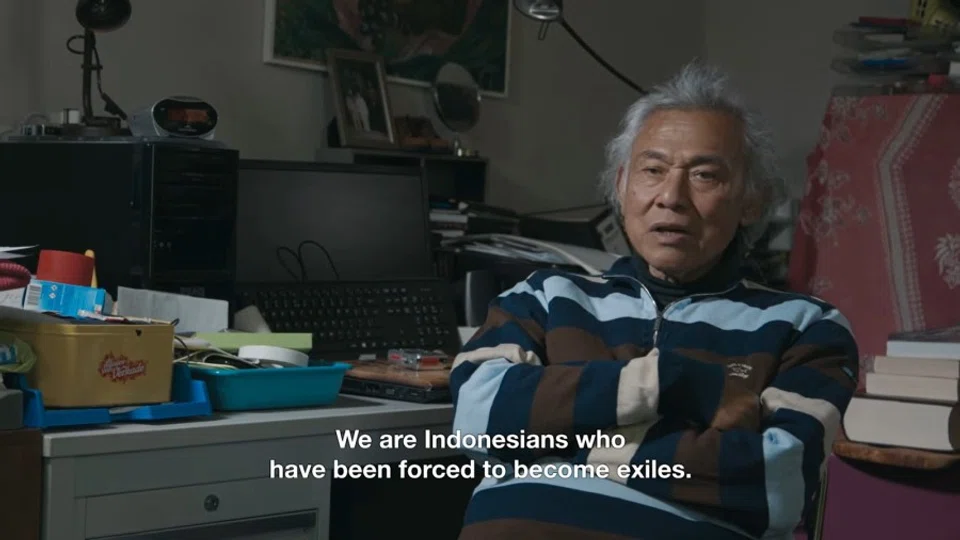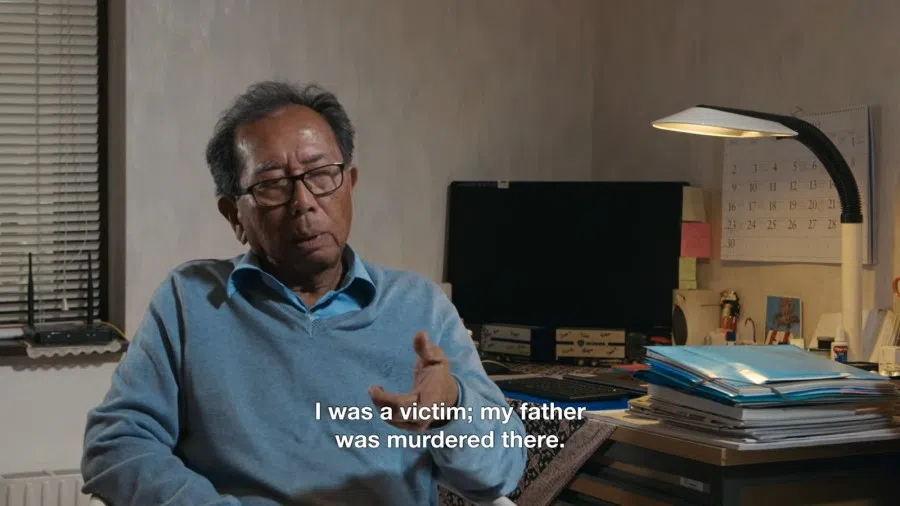Political taboo of questioning PKI's role in Indonesia's history: Documentary Eksil deals a blow
A popular documentary about ten exiles has had an extraordinary run in Indonesia, not least because it sings a different tune from the official historical narrative about the Communist Party of Indonesia (PKI) and its supporters, perpetuated since the Suharto era.

While being of no importance to Indonesia's election outcome, an event took place during the last weeks of the campaign period which could signal significant change in the medium term for Indonesian political life.
A major, even fundamental, taboo in Indonesian political life is to question the official narrative about the role of the Indonesian Communist Party (PKI) before 1965 and the events of 1965, which included widespread killings and a purge of the political left. This brought Major-General Suharto to power for 32 years of authoritarian rule.
Since the fall of Suharto in 1998 and the disintegration of much of the Suharto era's ideological machine, this taboo has been steadily, if only gradually, eroded.
Chipping away at a taboo
Between 2015 and 2023, there were various developments which eroded this taboo, including the ending of the compulsory watching of the Suharto-era major propaganda film Simposium Nasional Tragedi 1965 ("1965 Tragedy" National Symposium), which included representatives of former PKI political prisoners, and consistent campaigning by human rights and victims organisations.
Since 1 February 2024, for over one month, there has been an extraordinary event in Indonesia's cultural sphere. Probably for the first time in Indonesia's cinematic history, a documentary film is having a hit run. For context, Indonesia's cinemas are dominated by Indonesian horror films, slapstick comedy and Hollywood blockbusters. There has been no tradition of mainstream cinemas showing documentaries for more than one or two nights.
... that the documentary's subject is an empathetic treatment of Indonesians who openly and strongly identify as supporters of both the PKI and former President Sukarno, and presents a picture of the takeover of power by Suharto in 1965 as having brought about injustice.

Indonesian filmmaker Lola Amaria's film Eksil (The Exiles), has been screening nonstop in a mainstream Jakarta cinema, as well as in various other commercial cinemas around Indonesia. The two-hour documentary is still being screened several times daily in Plaza Senayan 21 Cinema. It has been discussed in many mainstream media outlets and generated significant Twitter traffic. (ISEAS editor's note: one example linked Eksil to the film Dirty Vote, exhorting citizens to watch both before the 14 February elections.)
Two things make these screenings extraordinary. First, that a documentary could attract full crowds of mostly younger people for over a month. Second, that the documentary's subject is an empathetic treatment of Indonesians who openly and strongly identify as supporters of both the PKI and former President Sukarno, and presents a picture of the takeover of power by Suharto in 1965 as having brought about injustice.
The exiles whom Eksil features are Indonesians who were outside Indonesia in 1965 and who were unable to return to Indonesia for all of Suharto's rule because they were identified as PKI members or had refused to sign statements that they no longer supported President Sukarno (who was president from 1950-1967).
Eksil documents these exiles' lives and emotions and is interested more in their humanity than their politics but does not hide their politics.
The lives of exiles
In making the film, director Lola Amaria visited and spoke to more than ten exiles, most of whom were living in the Netherlands. These included the late Asahan Aidit, the brother of PKI chairperson D.N. Aidit, who was executed in 1965, and the late Samardji, a documentarian of the exiles who singlehandedly created a complete archive of Indonesian exiles in the Netherlands and a library of the left in his tiny pensioner's flat.
Samardji had been studying primary school teaching in the People's Republic of China in 1965 and eventually found himself in exile in the Netherlands. Old and frail when he was interviewed, he declared he was determined to stay alive until the PKI had reached the 100th anniversary of its founding. (ISEAS editor's note: PKI's forerunner organisation, the Indies Social Democratic Association (ISDV), was founded in 1914 while it took on the PKI name in 1924, ceasing operations in March 1966; PKI's centennial would thus fall this year.)

Eksil documents these exiles' lives and emotions and is interested more in their humanity than their politics but does not hide their politics. The film won the prize for best feature film at the 2022 Jogja-NETPAC Asian Film Festival (JAFF) and also won the prize for best documentary film at the November 2023 Jakarta International Film Festival. Probably tens of thousands have watched the movie by now, with at least 30,000 watching in one week in February alone.
The deeper reflection of the erosion of this taboo is the enormously positive response it has received from its overwhelmingly young audiences. The erosion of this taboo is an erosion of a long dominant official historical narrative.
Versions of history
There are reports that many in the cinema audience are in tears by the end of the film, having witnessed people who had spent their whole lives in exile but still loved their country and their ideology. The massive Twitter traffic that Eksil has aroused is full of statements of empathy and the sentiment that Indonesians have been taught an unbalanced version of their history. The open identification of these exiles as being closely associated with the PKI has not lessened the empathy that the film has aroused amongst its young Indonesian viewers.
There have been literary discussions of the 1965 events over the last several years. These include at least five novels, including by prominent writers such as Leila Chudori and Laksmi Pamuntjak. Eksil has provoked criticism of these novels on X/Twitter, that these novels tended to stereotype PKI supporters or members as dupes, or people accidentally swept into the Communist orbit or who later regretted their earlier affiliation, a criticism that was made earlier.
In this respect, Eksil is similar to Faiza Mardzoeki's play Nyanyi Sunyi Kembang-Kembang Genjer (Silent Song of the Genjer Flowers), which was also based on interviews but of women who were political prisoners between 1965 and 1979, that presented them as genuinely holding onto their earlier pro-Sukarno political views.
The fact that Eksil passed official censorship is one example of the erosion of the taboo against alternative discourses on the events of 1965, although there was at least one case of the authorities preventing its screening in Samarinda, East Kalimantan. The deeper reflection of the erosion of this taboo is the enormously positive response it has received from its overwhelmingly young audiences. The erosion of this taboo is an erosion of a long dominant official historical narrative.
This article was first published in Fulcrum, ISEAS - Yusof Ishak Institute's blogsite.





